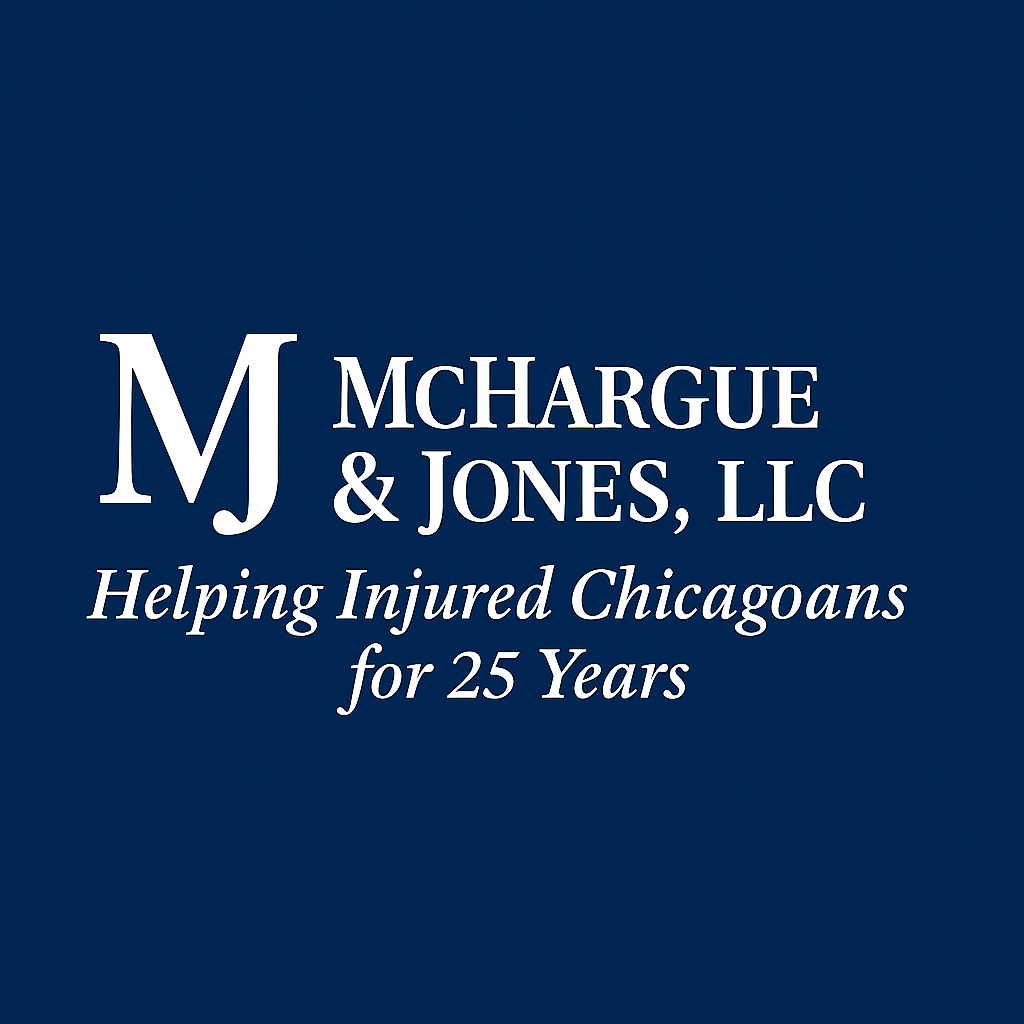Frequently Asked Questions
Answered by Our Chicago Workers' Compensation Lawyers
How soon do I need to report a work injury in Illinois?
In Illinois, you should report a work injury to your employer as soon as possible. While the law allows up to 45 days to give notice, reporting immediately helps protect your right to benefits and avoids disputes with your employer or insurance company.
Personal injury and workers’ compensation law cover a wide range of legal situations. For nearly 20 years, we have been helping clients across the state, and we have the knowledge and experience to handle any injury-related case.
We have handled many different kinds of injury cases, including:


Can I still get workers’ compensation if I’m partly at fault or have a pre-existing condition?
Yes. Illinois workers’ compensation is a no-fault system, which means you can still receive benefits even if you contributed to the accident.
A pre-existing condition also doesn’t disqualify you. If you can show your work accident aggravated, accelerated, or worsened your condition, you’re still eligible for benefits. These are cases insurance companies love to fight, but we have a strong record of proving these and winning.


What’s the difference between TTD, TPD, and PPD benefits?
These are the main types of benefits in Illinois workers’ compensation:
Temporary Total Disability (TTD) is paid when you can’t work at all while recovering.
Temporary Partial Disability (TPD) is paid if you can work light duty or part-time and earn less than before.
Permanent Partial Disability (PPD) compensates you for lasting damage or permanent impairment once you’ve reached maximum medical improvement.
For a detailed explanation and examples, see our blog post on the types of workers’ compensation benefits in Illinois.
Still have questions? Contact us today!
To get help and guidance when reporting and filing your workers’ compensation claim, call McHargue & Jones, LLC at (312) 739-0000.


How is my Average Weekly Wage (AWW) calculated for benefits in Illinois? How much does workers' comp pay?
Your Average Weekly Wage is based on your earnings over the 52 weeks before your accident with the same employer.
If your doctor takes you off work, you should receive 2/3 of the AWW, tax free.
If you haven’t worked there for a full year or your hours vary, the law allows a “like-employee” comparison — looking at what others doing similar work earn — to keep it fair.
There are several methods to calculate AWW, and insurance companies sometimes try to use the one that benefits them. We make sure your benefits reflect your true earnings.
Unfortunately, this happens all too often. If your employer doesn’t have workers’ compensation insurance, they should be reported to the Illinois Workers’ Compensation Commission’s Insurance Compliance Division. Many clients report being nervous to report their employers, but this shouldn’t stop you from holding them accountable. If your employer does not properly pay the benefit, you should be entitled to receive under the Illinois Workers’ Compensation Act. Our Attorney may be able to secure your money from the Illinois Injured Workers’ Benefit Fund. This fund is established to provide access to benefits for people unfortunate enough to have been injured while working for an uninsured employer. For help and support with reporting your employer, call one of our lawyers at (312) 739-0000. Our Chicago lawyers can help you file your claim with The Illinois Workers’ Compensation Commission.


Can I Be Demoted or Fired for Filing?
No. Illinois law prohibits retaliation — including firing, demotion, or harassment — against employees who file or report a workers’ compensation claim.
If you’ve been treated unfairly after filing, you may have both a workers’ compensation case and a separate retaliation or wrongful termination claim. If this is happening, document everything and call us right away.


My accident was a slip and fall at the workplace, what should I do?
Slip and fall injuries are some of the most common work-related accidents that occur on the job and warrant a workers’ compensation claim. This is due, in part, to the fact that slipping and falling is a job hazard of virtually every occupation in the U.S. Whether you work in the food industry, retail, or at a desk, you are never immune from the possibility of slipping on a wet surface or tripping over a congested walkway. As you’ll see from the list below, some of the most common causes of slip and fall accidents at work can happen in any job setting:
- wet surfaces;
- uneven surfaces;
- moisture collection;
- obstructed walkways;
- loose floorboards or mats; and
- recently waxed or mopped floors.
Unfortunately, insurance companies don’t want to cover on-the-job injuries and they will do everything in their power to deny the workers’ comp claim you file. That’s why it is imperative that you fully document the accident, including environmental factors connected to the fall, and act quickly when filing. A workers’ compensation lawyer can help you prepare your claim or appeal a claim that’s been denied by the insurance company.


For a free consultation with our workers’ compensation and personal injury attorneys in Chicago, call (312) 739-0000.
Free Consultation
Start Today
Why Hire Us
![]() Millions of Dollars Recovered for Injured Victims
Millions of Dollars Recovered for Injured Victims
![]() Nearly Two Decades of Experience
Nearly Two Decades of Experience
![]() No Fees Unless We Win
No Fees Unless We Win
![]() Free Consultation, Available 24/7
Free Consultation, Available 24/7
![]() Se Habla Español
Se Habla Español




